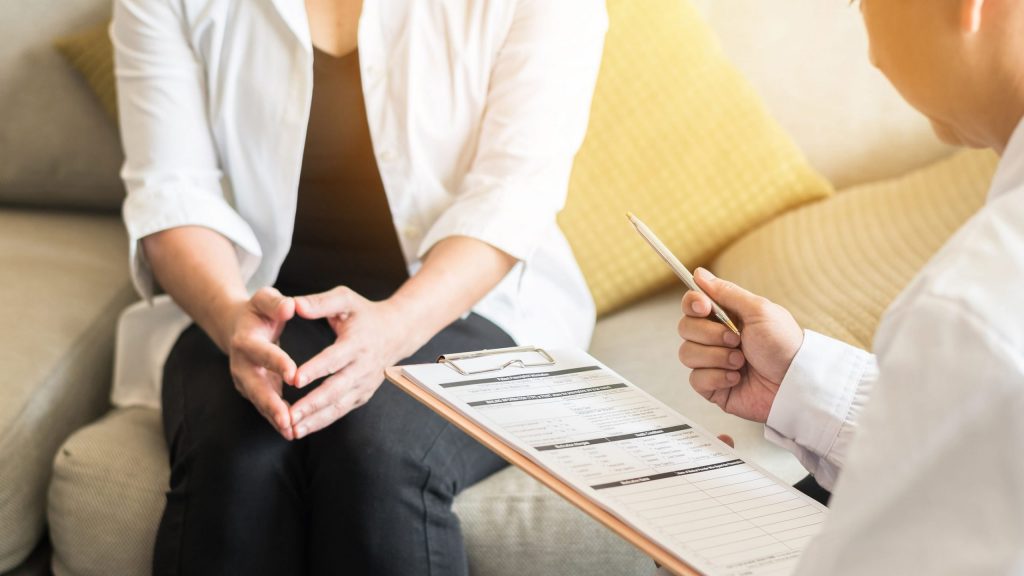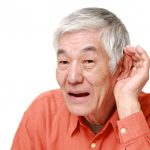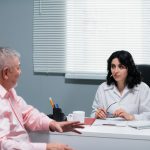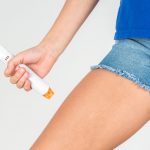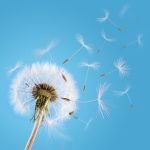Node Smith, ND
Despite the wealth of information now available about menopause, women are still not comfortable in proactively discussing vaginal issues related to menopause with their healthcare providers, who appear equally uncomfortable and unlikely to initiate the conversation. That’s according to a new study presented during The North American Menopause Society (NAMS) Annual Meeting in Chicago, September 25-28, 2019.
New study involving more than 1,500 postmenopausal women
In this new study involving more than 1,500 postmenopausal women, 45% reported some type of postmenopausal vulvovaginal symptom, such as vaginal dryness, itching, soreness, or odor. Of these symptomatic women, only 39% discussed their symptoms at their well woman visits.
When conversations about vulvovaginal health took place, this is what researchers discovered
When conversations about vulvovaginal health did take place, researchers discovered that it was the patient who more often initiated the discussion than the clinician (59% vs. 22%), with 16% reporting that both started the discussions.
Of the women who entered into a conversation with their healthcare providers, 83% were satisfied or very satisfied with the results of the discussions as they led to helpful recommendations. Of the women who didn’t have a conversation, 18% wished they had.
Nearly half of postmenopausal women reported having a vulvovaginal problem
Nearly half of these postmenopausal women reported having a vulvovaginal problem, yet a minority discussed their symptoms at a well woman visit. Since the discussions that did occur led to helpful interventions, this suggests a role for greater clinician-initiated screening for genitourinary syndrome of menopause,” says Dr. Amanda Clark, study lead author and affiliate investigator, Kaiser Permanente Center for Health Research in Portland, Oregon.
“With so many options now available, such as over-the-counter lubricants and moisturizers as well as low dose vaginal hormonal products containing estrogen or DHEA, there is no reason for women to continue to suffer in silence,” says Dr. Stephanie Faubion, NAMS medical director. “Hopefully studies like this one will open the door to better patient-provider communication at well woman visits.”
 Node Smith, ND, is a naturopathic physician in Humboldt, Saskatchewan and associate editor and continuing education director for NDNR. His mission is serving relationships that support the process of transformation, and that ultimately lead to healthier people, businesses and communities. His primary therapeutic tools include counselling, homeopathy, diet and the use of cold water combined with exercise. Node considers health to be a reflection of the relationships a person or a business has with themselves, with God and with those around them. In order to cure disease and to heal, these relationships must be specifically considered. Node has worked intimately with many groups and organizations within the naturopathic profession, and helped found the non-profit, Association for Naturopathic Revitalization (ANR), which works to promote and facilitate experiential education in vitalism.
Node Smith, ND, is a naturopathic physician in Humboldt, Saskatchewan and associate editor and continuing education director for NDNR. His mission is serving relationships that support the process of transformation, and that ultimately lead to healthier people, businesses and communities. His primary therapeutic tools include counselling, homeopathy, diet and the use of cold water combined with exercise. Node considers health to be a reflection of the relationships a person or a business has with themselves, with God and with those around them. In order to cure disease and to heal, these relationships must be specifically considered. Node has worked intimately with many groups and organizations within the naturopathic profession, and helped found the non-profit, Association for Naturopathic Revitalization (ANR), which works to promote and facilitate experiential education in vitalism.

